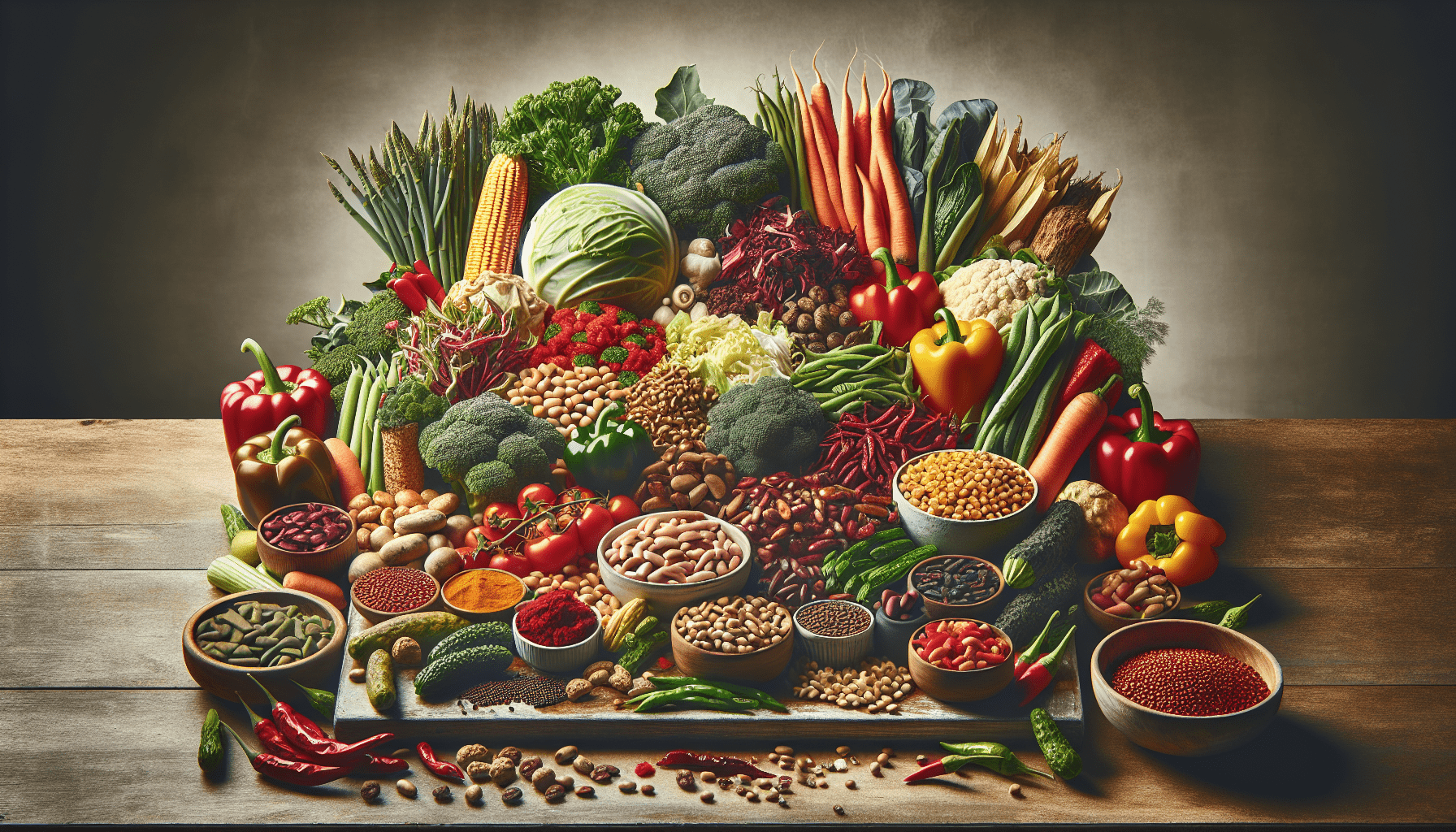Have you ever wondered why certain foods make your stomach feel uncomfortable or even upset? It’s a common experience that leaves many pondering which meals might be too challenging for their digestive system. Understanding the foods that are hardest on your gut can guide you toward dietary choices that promote better digestive health and enhance overall well-being.

The Complexity of Digestive Health
Digestive health is a cornerstone of your overall physical health, facilitating nutrient absorption and waste elimination. It’s vital to recognize that the digestive system functions as an intricate machine that requires balanced input to operate optimally. Let’s explore why some foods pose challenges to this delicate system.
How Digestion Works
Your digestive system processes the food you consume, breaking it down to extract essential nutrients and energy. This complex series of actions involves various organs, enzymes, and microbiota, all of which work in harmony. The process begins in the mouth and continues through the stomach, intestines, and finally, the colon.
Digestive difficulties often arise when the harmonious function of these elements is disrupted, often by specific foods that can irritate or overwhelm your system. While different people may react to foods uniquely, there are common culprits known to challenge digestion.
Common Foods That Challenge Digestion
Certain foods are known for being especially tricky for your digestive system to handle. Let’s dissect some of these offenders and understand what makes them taxing on your gut.
Fatty and Fried Foods
Fatty and fried foods often lead to digestive discomfort. They are difficult for your body to break down, leading to extended digestion times that can result in bloating and indigestion. This is because fats stimulate the production of a hormone called cholecystokinin, which slows gastric emptying, prolonging the digestion process.
| Fatty Foods | Examples |
|---|---|
| Fried foods | French fries, fried chicken |
| High-fat meats | Bacon, sausage |
| Cream-based dishes | Alfredo sauces, ice cream |
Dairy Products
If you’re lactose intolerant, consuming dairy can be particularly challenging. Lactose, a sugar found in milk, requires the enzyme lactase for digestion. Those lacking in lactase can experience gut distress after consuming dairy products, leading to symptoms like bloating, diarrhea, and gas.
Spicy Foods
Spicy foods contain capsaicin, which can irritate the lining of your stomach, leading to discomfort and indigestion in some individuals. While some thrive on the heat of spicy dishes, others may find them exhausting for their digestive system.
Sugary Foods and Drinks
High sugar intake can disrupt the balance of gut bacteria, sometimes causing bloating, excessive gas, and diarrhea. Sugars can ferment, increasing the production of gas and possibly leading to discomfort. Furthermore, sugary drinks are usually devoid of fiber, causing them to digest rapidly, which can spike blood sugar levels.
Artificial Sweeteners
Artificial sweeteners like sorbitol, mannitol, and xylitol are often found in sugar-free products. These sweeteners can cause digestive upset as your body cannot fully absorb them, leading to fermentation in the intestines and subsequent gas and bloating.
Non-Soluble Fiber
While fiber is generally beneficial for digestion, non-soluble fiber can be tough on your gut. Foods high in non-soluble fiber, such as whole grains, nuts, and seeds, pass through your digestive tract largely intact, possibly causing irritation and bloating for those with sensitive stomachs.

Individual Variance in Food Tolerance
It’s essential to acknowledge that everyone’s digestive capabilities vary. What might cause distress in one person could be perfectly digestible for another. Let’s take a closer look at how individual differences play a crucial role in digestion.
Genetic Predisposition
Your genetic makeup can influence how you process specific foods. Genetics can dictate enzyme production, including those necessary for the digestion of lactose or gluten, making you more prone to intolerances or sensitivities.
Microbiota Composition
The vast array of bacteria in your gut, known as the microbiota, plays a significant role in digestion. The balance of these microorganisms can affect how food is processed and, consequently, your gut’s reaction to certain substances.
Lifestyle Choices
Lifestyle choices, such as stress levels, exercise habits, and sleep quality, also influence your digestive health. Stress, in particular, can exacerbate digestive issues and alter the way your body processes various foods.
Gut Health and Overall Wellbeing
Maintaining your gut health isn’t just about avoiding discomfort. Your digestive health profoundly impacts your overall well-being. When your gut is healthy, your body more efficiently absorbs nutrients, enhances your immune response, and regulates hormones.
Symptoms of Poor Gut Health
Poor gut health is often indicated by symptoms like chronic digestive discomfort, fatigue, and even mental health issues like anxiety and depression. Identifying these symptoms early can help you make informed dietary adjustments.
Strategies for Digestive Health
-
Balanced Diet: Incorporating a variety of foods, particularly those rich in soluble fiber like oats and bananas, can promote digestive health.
-
Hydration: Adequate water intake is vital for a well-functioning digestive system. Water aids in breaking down food and allows waste to pass more easily through the digestive tract.
-
Mindful Eating: Eating slowly and chewing your food thoroughly can aid digestion and reduce the likelihood of discomfort.
-
Probiotics: Consuming probiotics can help maintain a healthy balance of bacteria in your gut, potentially improving digestion and reducing symptoms of distress.
-
Exercise: Regular physical activity can stimulate digestion and help manage stress, benefiting your overall gut health.

Special Considerations: Food Intolerances and Allergies
Some people have specific food intolerances or allergies that can severely impact their digestion and health. It’s crucial to identify and manage these to maintain your digestive wellness.
Identifying Food Intolerances
Food intolerances can manifest in various ways, including bloating, diarrhea, and abdominal pain. If you suspect you have an intolerance, maintaining a food diary can help identify dietary triggers. Through elimination diets, you can determine the specific foods causing distress.
Food Allergies
Food allergies provoke an immune response that can be severe, leading to symptoms beyond digestive upset, such as hives or anaphylaxis. It’s essential to identify allergens and avoid them to prevent adverse health effects.
Conclusion
Your journey to understanding which foods are hardest on your gut requires observation, patience, and personalized adjustments. By learning about how different foods affect your digestive system, you can make informed decisions that promote long-term digestive health and comfort. Embrace the opportunity to align your dietary habits with your body’s needs, ensuring every meal contributes positively to your health and wellness. Remember, your gut is unique, and finding balance is key.
